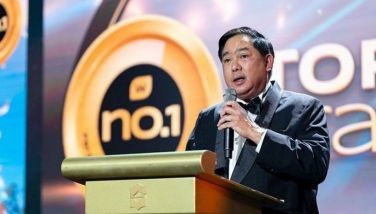Beyond politicians & bishops are the people
January 22, 2002 | 12:00am
Matters of faith and morals Filipinos already leave to popes and bishops. On matters political and the morality that must attend political life, it is interesting that bishops also insist on having their say especially during the conception, baptism, confirmation, termination and, at times, exorcism of this country’s political administrations. It is of course equally interesting that Philippine presidents – and, at the very fringes of political preeminence, all those salivating after the presidency – listen attentively to what the influential religious have to say.
In 2002, why the Philippines state and church are so firmly ligated to each other is difficult to understand. After all, even in countries that are predominantly Catholic like France, Italy and Spain, the bonds between the two entities appear to be so much less intimate and so much less compelling. Each entity extends the appropriate regard for the other with both remaining at a respectable distance from each other. At times it is true that state and church might be discreetly involved in the affairs of the other, but at all times they dutifully refrain from strident public admonitions in their delicate relations. Neither public sermons nor open censure on matters political or the morality of national administrations issue readily from the lips even as the times might indeed by less than bright and the political authorities less than inspiring most of the time.
Still, the factual condition being what it is, one must seek an explanation for the propensity of religious authorities to be grossly involved in political affairs and to openly castigate national administrations in the country. Part of the reason has to be the quality of political administration this country has unfortunately suffered in the last thirty years. Political fecklessness induced by a severe aversion to the active exercise of political power invites aggressive initiatives from many sectors of Philippine society and the religious – much like any other human congregation – find it hard to resist the temptation of political involvement and the seduction of direct intervention in matters political. Yielding actually comes easy when the religious also believe that they can claim paternity for the conception and birth of divinely-ordained national administrations such as the present one.
Worse than fecklessness in a political administration is the clear and present danger of its incorrigible corruption. Key public officials often abuse their mandate to rule and they betray the national interest in amassing incredible fortunes at the expense of their already miserable people. In dedicating themselves to graft and corruption, these predatory authorities automatically yield the moral high ground to the religious. Soon enough, their political administration finds itself on the receiving end of strident religious moralizing.
National administrations generally quietly suffer the "slings and arrows" hurled at them by the religious authorities. Whether they be corrupt or passably decent – albeit often lacking competence in governance when they are the latter – these administrations obviously fear the consequences of any direct confrontation with the country’s religious hierarchies (Catholic, INC, charismatic or otherwise). Such timorousness can only be explained by the political authorities’ insecurity in surviving such confrontations. Even when elected with the biggest margins by their people, Filipino political leaders reckon that religious anointment is critical to their political survival and they seek this sacramental favor in every possible occasion.
If, for purposes of political survival, the voice and support of the people is not enough nor politically comparable to the voice of the presumably godly, it must be that the people have not politically organized enough and thus lack effectiveness in influencing national outcomes. Or else their political education and organization have been coopted by their religious leaders and therefore what these leaders say necessarily goes. In either case, one is saying that the political authorities have not invested enough in building support bases among their own people. In so doing, a keen political observer once remarked, the political leaders must have foolishly mistaken their ultimate source of strength and durability and – in neglecting the people – built their regimes on foundations of sand.
In 2002, most Filipinos can only wonder what future awaits a country where the people must choose between grossly fallible political leaders and superbly infallible spiritual guides. Rare are those Filipinos who will forge alternatives beyond this historically costly either/or. (May their tribe increase!)
Only with such daring Filipinos may this nation properly hope to bring its series of EDSA’s to a closure and relegate all EDSA’s – the past ones as well as those which might yet come to pass – to being no more than a scholar’s historical asides.
In 2002, why the Philippines state and church are so firmly ligated to each other is difficult to understand. After all, even in countries that are predominantly Catholic like France, Italy and Spain, the bonds between the two entities appear to be so much less intimate and so much less compelling. Each entity extends the appropriate regard for the other with both remaining at a respectable distance from each other. At times it is true that state and church might be discreetly involved in the affairs of the other, but at all times they dutifully refrain from strident public admonitions in their delicate relations. Neither public sermons nor open censure on matters political or the morality of national administrations issue readily from the lips even as the times might indeed by less than bright and the political authorities less than inspiring most of the time.
Still, the factual condition being what it is, one must seek an explanation for the propensity of religious authorities to be grossly involved in political affairs and to openly castigate national administrations in the country. Part of the reason has to be the quality of political administration this country has unfortunately suffered in the last thirty years. Political fecklessness induced by a severe aversion to the active exercise of political power invites aggressive initiatives from many sectors of Philippine society and the religious – much like any other human congregation – find it hard to resist the temptation of political involvement and the seduction of direct intervention in matters political. Yielding actually comes easy when the religious also believe that they can claim paternity for the conception and birth of divinely-ordained national administrations such as the present one.
Worse than fecklessness in a political administration is the clear and present danger of its incorrigible corruption. Key public officials often abuse their mandate to rule and they betray the national interest in amassing incredible fortunes at the expense of their already miserable people. In dedicating themselves to graft and corruption, these predatory authorities automatically yield the moral high ground to the religious. Soon enough, their political administration finds itself on the receiving end of strident religious moralizing.
National administrations generally quietly suffer the "slings and arrows" hurled at them by the religious authorities. Whether they be corrupt or passably decent – albeit often lacking competence in governance when they are the latter – these administrations obviously fear the consequences of any direct confrontation with the country’s religious hierarchies (Catholic, INC, charismatic or otherwise). Such timorousness can only be explained by the political authorities’ insecurity in surviving such confrontations. Even when elected with the biggest margins by their people, Filipino political leaders reckon that religious anointment is critical to their political survival and they seek this sacramental favor in every possible occasion.
If, for purposes of political survival, the voice and support of the people is not enough nor politically comparable to the voice of the presumably godly, it must be that the people have not politically organized enough and thus lack effectiveness in influencing national outcomes. Or else their political education and organization have been coopted by their religious leaders and therefore what these leaders say necessarily goes. In either case, one is saying that the political authorities have not invested enough in building support bases among their own people. In so doing, a keen political observer once remarked, the political leaders must have foolishly mistaken their ultimate source of strength and durability and – in neglecting the people – built their regimes on foundations of sand.
In 2002, most Filipinos can only wonder what future awaits a country where the people must choose between grossly fallible political leaders and superbly infallible spiritual guides. Rare are those Filipinos who will forge alternatives beyond this historically costly either/or. (May their tribe increase!)
Only with such daring Filipinos may this nation properly hope to bring its series of EDSA’s to a closure and relegate all EDSA’s – the past ones as well as those which might yet come to pass – to being no more than a scholar’s historical asides.
BrandSpace Articles
<
>
- Latest
- Trending
Trending
Latest






















